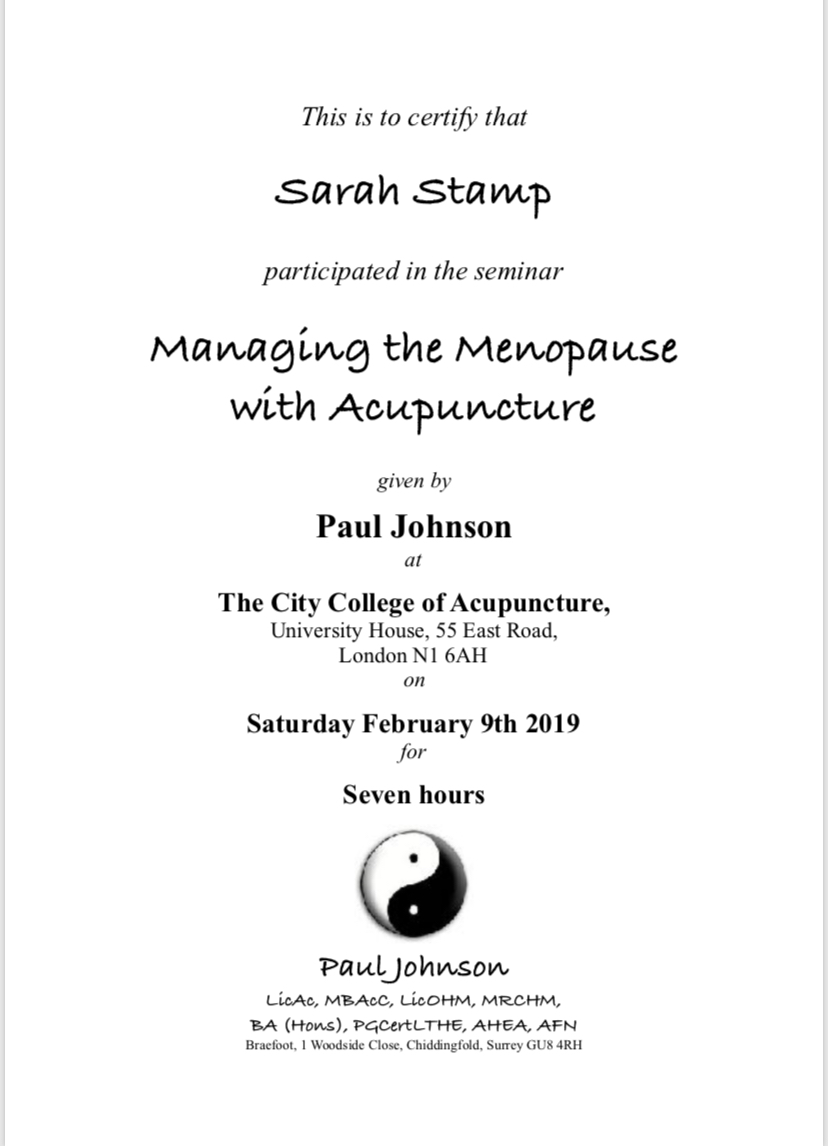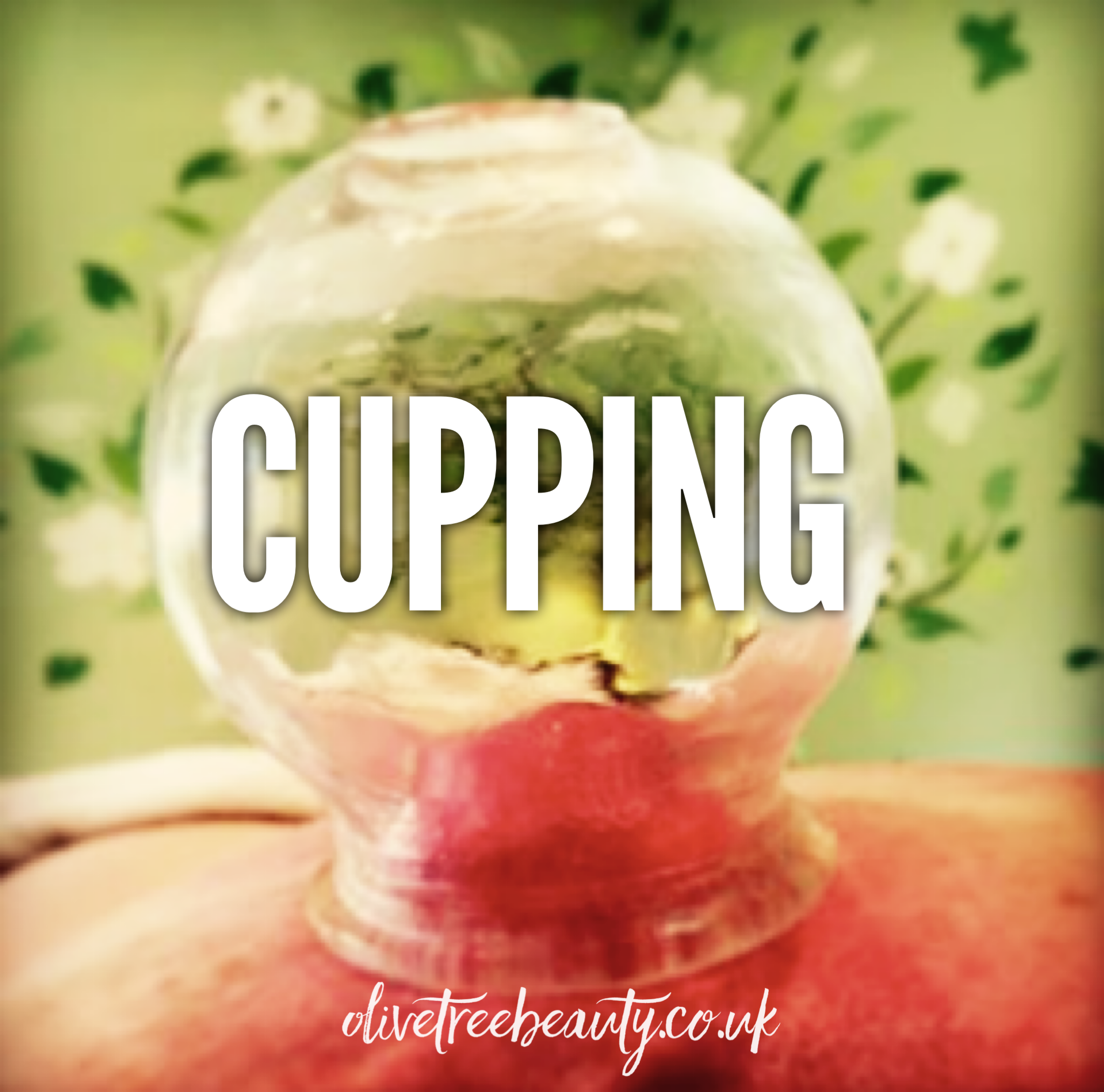As women it is inevitable that at some point in our lives we will go through the menopause. How we cope, manage or suffer with this can be affected by what we choose to do about it.
The initial stage is peri-menopause and this can last up to 10 years, this is when our fertility declines due to ovaries releasing eggs less regularly. Our menstrual cycles shorten and hormone levels oestrogen, progesterone, androgen and testosterone are reduced. During this time we may experience palpitations, bloating, changes in sleep patterns, breast discomforts, lack of sex drive, tiredness, aches and pains, weight gain, water retention, food cravings. (I know so much to look forward too).On top of these physical symptoms there are also a wide range of emotional symptoms we may encounter, varying from crying, fear, depression, forgetfulness, irritability, anxiety, indecisiveness, low self esteem and even lack of concentration. These symptoms are all very similar to PMS or premenstrual symptoms, although with PMS they would occur after ovulation. To determine if its pms or peri-menopause its a good idea to keep a diary of cycle and symptoms.These days you can find apps on your phones to calculate and keep track of your cycle.
When your periods have finally stopped for a complete year this is then known as menopause, a changing phase or your second spring as the Chinese refer to it.( much nicer and more poetic to call it second spring). It’s not a disease or even an illness, but a new chapter in your life where your body is changing and adapting. Our fertile years are behind us and we need to embrace the future ahead of us.
Any change can be hard, but this change takes us to the next stage of our lives.
Maciocia says it best :
(by the way he is a leading expert/author in the Chinese Medicine scene)
“Menopause is not a disease, it is the normal physiological transition in a woman’s life from a reproductive to a non-reproductive age “
In Traditional Chinese Medicine our bodies as females change every 7 year’s.
Female Jing Cycles of Seven
7 years of age Kidney energy begins to prosper
14 years of age menstruation begins as the Ren Mai flows and the Chong Mai begin to prosper
21 years of age Kidney Qi reaches a balanced state and teeth are fully developed
28 years of age vital energy and blood are substantial, limbs are strong and her body is at optimal condition
35 years of age peak begins to decline as the yang ming channel is depleted, her face withers and hair begins to fall out
42 years of age the three channels Tai Yang, Yang Ming and Shao Yang begin to decline. Her complexion is waning and her hair is turning white = perimenopausal
49 years of age both the Ren Mai and Chong Mai are now declining and her menstruation ceases, her body to turn old and feeble and no longer can she conceive = Menopause
So, what can we do to make a difference to our menopause?
Firstly preparation can make a difference, if you already suffer with periods and pms then its advised to get them under control. You can try the seed cycling that I mention in my previous blog, plus:
- acupuncture to regulate and address the imbalances,
- reflexology
- diet – eating a healthy diet with natural phytoestrogens in
- increasing your omega 3 fatty acids,
- quit smoking
- reduce alcohol
- reduce caffeine
- avoid refined sugar
- exercise – for immune boosting, anti ageing, detoxification
- reduce stress levels
- ensure you are sleeping well
- avoid pesticides, phthalates,parabens,
Once menopause has started then it all depends on what symptoms you have to how to treat you. The Western Medicine approach to hot flushes is hormone replacement therapy (HRT) which is extremely effective in the reduction of the severity and frequency of the flushes.Under the NHS guidelines many supplements have been suggested as well as HRT such as Black Cohosh and isoflavones. nice.org.uk
Despite the effectiveness of HRT it also has potential side effects including:
- endometrial cancer
- undesirable weight gain / loss
- breast tenderness / enlargement
- bloating
- depression
- thrombophlebitis
- elevated blood pressure
- reduced carbohydrate tolerance
- skin rashes
- hair loss
- abdominal cramps
- vaginal candidiasis
- jaundice
- vomiting
- cystitis – like syndrome
Glenville. M 2011 p17
Did you know….
Background information revealed that hot flushes were more prevalent in the Western world than the Eastern. “75% of American women experience noticeable menopausal discomfort, while only 10% of Asian women experience the same.”pacificcollege.edu. It has been speculated that alternative treatments, diets and lifestyle are the reason that women in the East do not suffer hot flushes and women in the West do, although this requires further investigation.
What is a hot flush ?
- A sudden intense feeling of heat
- Rapid or irregular heartbeat and pulse.
- Heart palpitations may occur
- Flushing of the skin tone
- Perspiration
- Cold chills
- Sleep disturbance
- Other symptoms :
- Nausea, dizziness, anxiety, and headaches
Other Menopausal symptoms :
- psychological problems (e.g. anxiety and depression);
- problems with memory and concentration
- vaginal dryness;
- urinary problems
- lack of interest in sex
- sleep disturbance
- headaches
- joint and muscle stiffness.
These typically last for about 4 years after your last period though about 10% of women will experience symptoms for much longer. If you are suffering from unpleasant menopausal symptoms you are not alone – 80% of women in the UK suffer one or more symptoms during this time.
Alternative treatment
Acupuncture is a wonderful therapy that you can have before, during and after menopause to help create balance within the body. The many symptoms of menopause such as hot flushes, night sweats, insomnia, aching joints, headaches, frozen shoulder, mood swings etc will all be looked at and addressed in an acupuncture session. I treat everyone individually with a full consultation to get a clear history and background of whats going on. Its with that information that I can then form a treatment plan that is tailor made to you. Along with my background as a naturopath I offer lifestyle advice that may include, diet, flower remedies, tissue salts etc.
Being physically active during and after the menopause can help to manage menopause symptoms such as psychological problems (e.g. anxiety and depression), weight gain, sleep disturbances and hot flushes. It will also benefit your bone health and reduce the risk of cardiovascular disease, both of which are health problems associated with the menopause.
Weight bearing exercises, such as brisk walking, tennis, running, dancing or climbing stairs, and resistant exercises, such as press-ups and using weights, are particularly good for your bones. Aerobic activity is important for heart health; moderate activity should raise your heart rate and make you breathe faster and feel warmer and vigorous activity should make you breathe hard and fast.
Adults should try to do:
- At least 150 minutes of moderate- intensity aerobic activity a week PLUS muscle strengthening activities on two days or more of the week.
- OR 75 minutes of vigorous intensity aerobic activity PLUS muscle strengthening activities on two days or more of the week.
- OR a combination of moderate and vigorous aerobic activity every week. For example, one 30 minute run and one 30 minute fitness class, plus 30 minutes of fast walking equates to 150 minutes of moderate aerobic activity PLUS muscle strengthening activities on two days or more of the week.
Other tips:
- Drinking water also helps decrease the bloating that occurs with hormonal changes
- calcium needs increase during menopause because the loss of oestrogen can speed up bone loss
- metabolism slows down as you get older, and women in their mid-forties tend to become more sedentary. This all adds up to weight gain, one of the most dreaded menopause symptoms. By filling up on low-calorie fruits and vegetables, you can help minimise weight gain while getting the nutrients you need to stay healthy.
- Getting enough vitamin D is also critical for protecting your bones during menopause.
- whole grains, such as steel-cut oatmeal, quinoa, barley, and brown rice, provide B vitamins — which help boost energy, manage stress, and keep the digestive system functioning,
- Folic acid and fibre, also found in whole grains, help lower risk for cardiovascular disease, which rises after menopause.
- soy – eat edamame, tofu, and other soy foods as much as possible
- Flaxseed is a wonderful plant-based food with omega-3 fatty acids. Try sprinkling ground flaxseed on cereal, yogurt, and salads; it adds fibre to your diet, keeps your arteries healthy, and has some oestrogen-like compounds
So instead of sticking your head in the sand or fretting about the future why not get prepared and embrace the change. Here’s to a happy and healthy Second Spring.

resources :
Obstetrics & Gynaecology in Chinese Medicine G. Maciocia Churchill Livingstone 1998
G.Berger Menopause and Culture Pluto Press 1999
Natural Solutions to Menopause M. Glenville. Rodale 2011
https://www.marilynglenville.com/books/natural-solutions-to-menopause-book/
The Essential Woman. E. Rochat De La Vallee Monkey Press 2007
Menopause and Chinese Medicine B.Flaws Blue Poppy Press 2006

